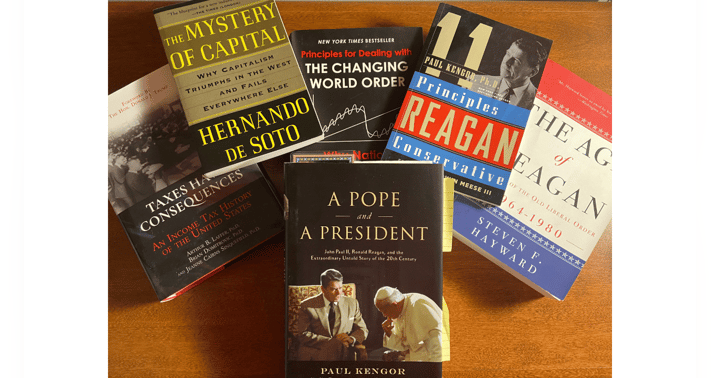Woodrow Wilson's Controversial Legacy: Race and Civil Liberties
This blog post delves into the complex and often contradictory legacy of Woodrow Wilson, the 28th President of the United States. While often lauded for his progressive domestic policies and his role in shaping the post-World War I world order, Wilson's presidency is also deeply stained by his profoundly racist views and actions that severely curtailed civil liberties. This examination explores the stark contrast between his public image and his private beliefs, highlighting the lasting impact of his discriminatory policies on American society. This post expands on the discussion of Wilson's presidency found in our latest podcast episode, LM#59--Our Worst U.S. Presidents in Modern American History: A Conservative Ranks Them Objectively.
Segregation and the Federal Government
The Re-segregation of Federal Departments
Prior to Wilson's presidency, federal departments had maintained a relatively integrated workforce. However, upon assuming office, Wilson oversaw the systematic re-segregation of these departments. Black employees, who had previously held positions of relative equality, were relegated to menial labor and subjected to humiliating segregation. This act was not merely a passive acceptance of existing societal prejudices; it was an active policy decision driven by Wilson's own deeply held racist beliefs. This policy reversal was a stark betrayal of the progress made toward racial equality in the federal government and set a detrimental precedent for decades to come. The blatant disregard for the rights and dignity of Black workers stands as a shameful chapter in American history.
The Justification of Segregation
Wilson's administration, through various statements and actions, attempted to justify the re-segregation on grounds of maintaining order and social harmony. This justification, however, masked the underlying racial prejudice that fueled the policy. The argument that racial separation was necessary for efficiency or to avoid racial tension completely ignored the historical context and the inherent injustice of segregation. It effectively sanctioned discrimination and perpetuated a system of inequality under the guise of administrative expediency.
Wilson's Views on Race: A Deeper Dive
Racial Stereotypes and Beliefs
Wilson's private writings and public statements reveal a disturbingly consistent pattern of racist views. He openly expressed belief in the inherent inferiority of Black people, endorsing harmful stereotypes that were widely circulated at the time. These beliefs weren't simply personal opinions; they profoundly shaped his policy decisions and contributed directly to the discriminatory environment of his administration. This ingrained racism undermines any attempt to portray him as a progressive reformer solely focused on positive societal change.
The Impact of Wilson's Racism
Wilson's racist policies were not confined to the federal workplace. His actions, and the acceptance of his views by many within his administration, helped to solidify and exacerbate racial segregation across the country. His legacy contributed significantly to the Jim Crow South, a period marked by legalized discrimination and widespread oppression of African Americans. This impact far outweighs his often-cited achievements in other areas, reminding us that his legacy is irrevocably tied to the suffering he inflicted upon an entire population.
Civil Liberties and World War I
The Espionage and Sedition Acts
During World War I, Wilson's administration enacted the Espionage and Sedition Acts, which severely restricted freedom of speech and assembly. These acts were used to suppress dissent and punish those who criticized the war effort, particularly those who voiced anti-war sentiments or criticized the government's handling of the conflict. While framed as necessary measures for national security, these acts were disproportionately used to silence progressive voices, including socialists, labor activists, and anti-war protesters. Many of those targeted were disproportionately immigrants and those from minority communities, highlighting a double standard in the application of these restrictive laws.
The Suppression of Dissent
The impact of the Espionage and Sedition Acts extended far beyond the arrests and prosecutions. The chilling effect of these laws stifled open dialogue and created an atmosphere of fear and self-censorship. Individuals and organizations hesitant to express critical opinions, for fear of persecution, led to a suppression of valuable debate. This assault on free speech demonstrates the dangers of unchecked government power and serves as a cautionary tale for future generations.
Conclusion: A Complex and Troubling Legacy
Woodrow Wilson’s presidency presents a complicated and deeply troubling legacy. While he achieved notable successes in domestic and international affairs, his profound racism and the systematic curtailment of civil liberties under his administration cannot be ignored or minimized. His actions had far-reaching consequences, setting back the progress toward racial equality and chilling the exercise of fundamental rights. The re-segregation of federal departments, the endorsement of racist ideologies, and the suppression of dissent during World War I represent critical aspects of his presidency, highlighting the uncomfortable truth that even progressive figures can harbor deeply harmful prejudices that significantly shape their policies and actions. By understanding the full scope of Wilson's legacy, including both his achievements and his failures, we can gain a more nuanced perspective on the complexities of American history and the ongoing struggle for racial justice and civil liberties. This nuanced perspective is exactly what we aimed to provide in our latest podcast episode, where we ranked several presidents – including Woodrow Wilson – based on their overall impact on American history. We hope you'll listen and contribute your thoughts to the ongoing discussion.







